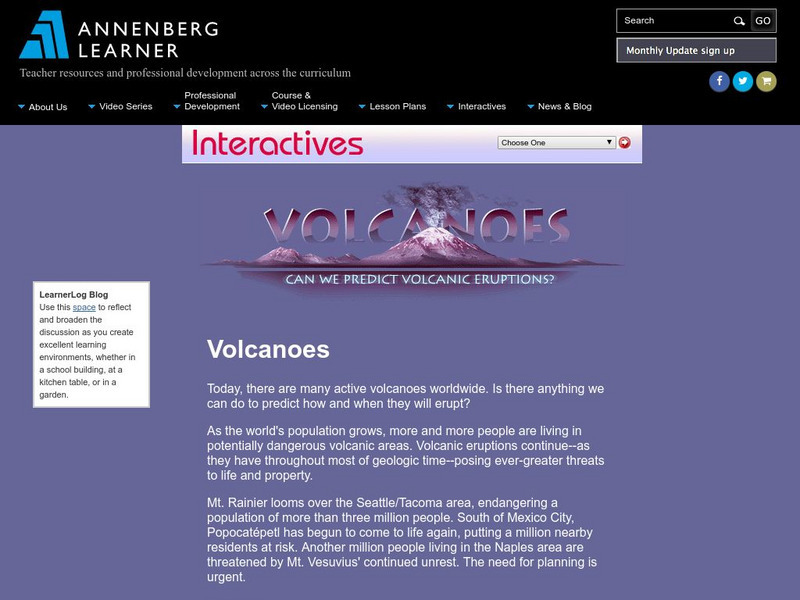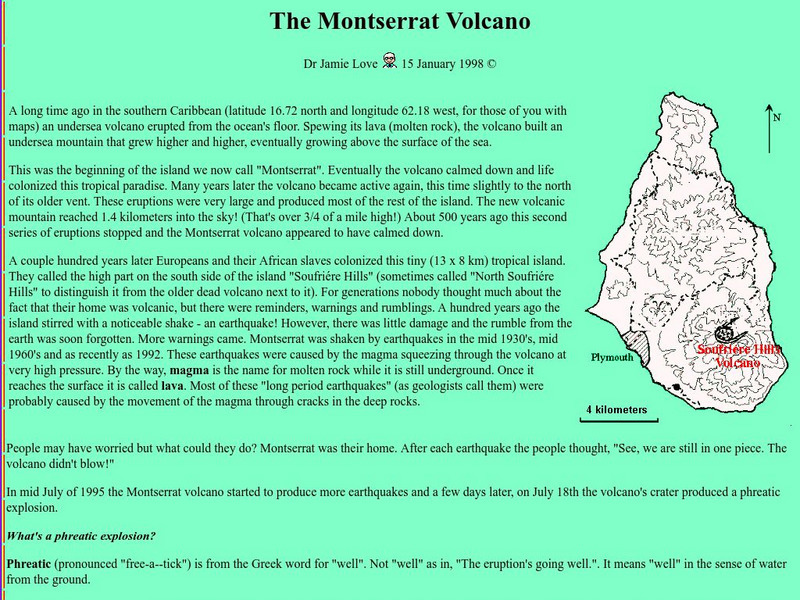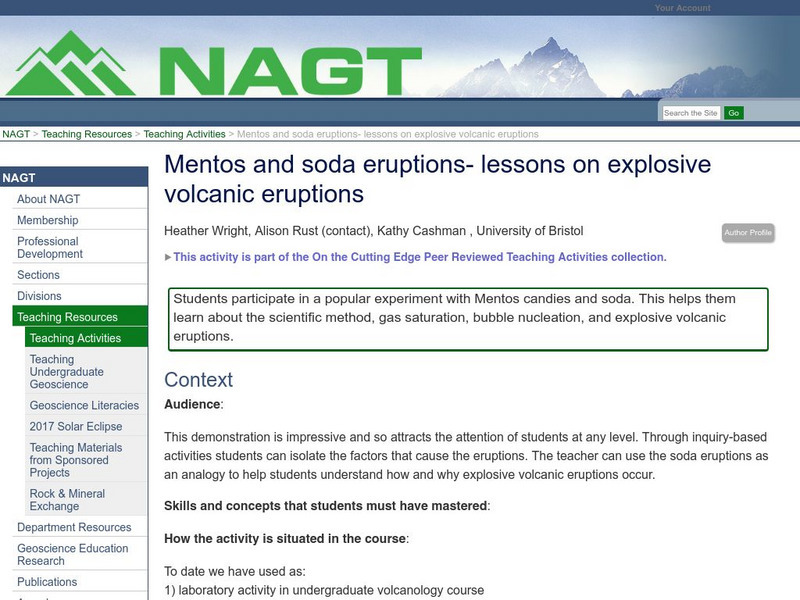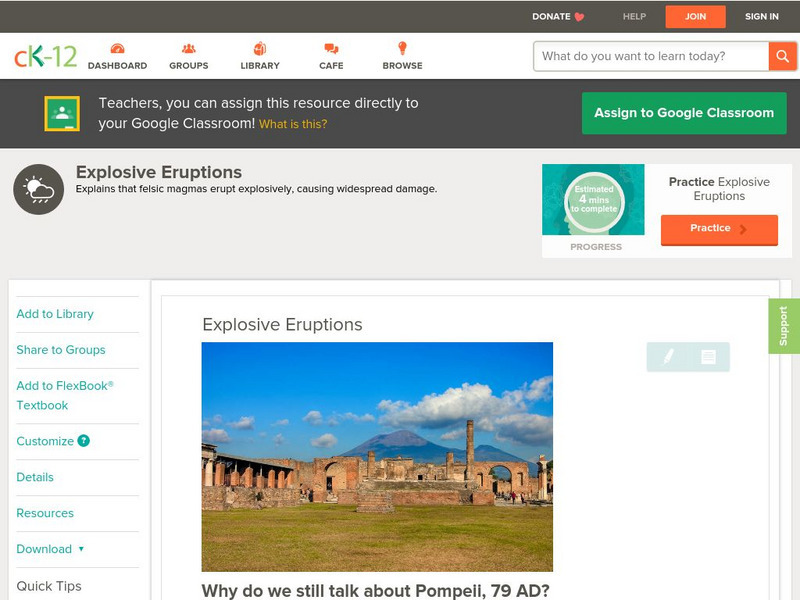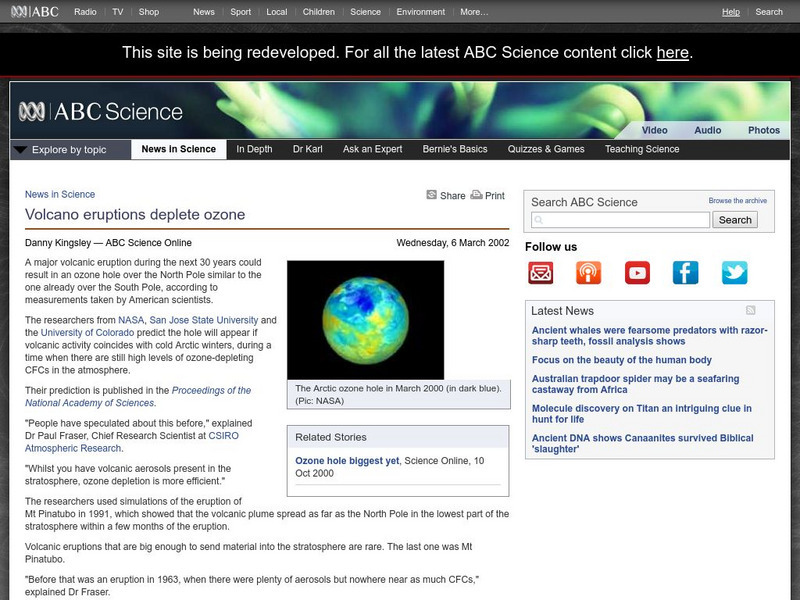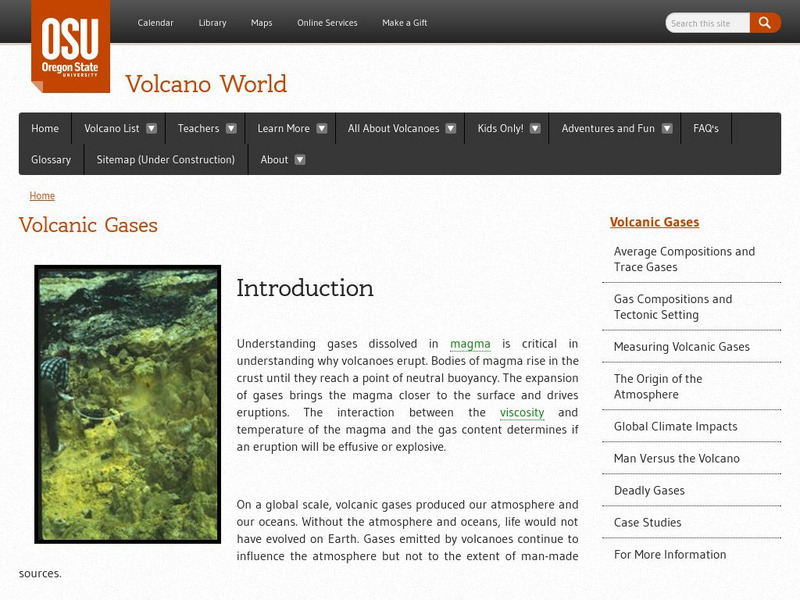PBS
Nova: Seismic Signals
Scientists have determined that the earthquakes preceding volcanic eruptions are different than those that precede earthquakes. Discover the sounds and wave patterns produced by the three different types of volcanic seismic activities.
Annenberg Foundation
Annenberg Learner: Volcanoes: Can We Predict Volcanic Eruption
Wonderful presentation on volcanoes! Why do volcanoes erupt? How do they erupt? What happens to the land? Can volcano eruptions be predicted? Find the answers by clicking on this resource!
University Corporation for Atmospheric Research
Ucar: Little Ice Age: Dark Skies: Volcanic Contribution to Climate Change
In this activity, young scholars learn how volcanic eruptions affect global climate.
Other
Science Explained: Montserrat Volcano
Read an illustrated description of how an undersea volcanic eruption formed the Caribbean island of Montserrat. Includes a lengthy description of volcanic processes and defines many volcanic terms, such as lahar, tephra, and pyroclastic...
US Geological Survey
Usgs: Types of Volcanic Eruptions
Types of volcanic eruptions are named after actual volcanoes. View the eruptions of these volcanoes.
National Association of Geoscience Teachers
Serc: Mentos and Soda Eruptions: Lessons on Explosive Volcanic Eruptions
Students will learn about volcanic eruptions, the scientific method, gas saturation, and bubble nucleation by participating in a popular experiment with Mentos candies and soda.
CK-12 Foundation
Ck 12: Earth Science: Explosive Eruptions
[Free Registration/Login may be required to access all resource tools.] Explosive eruptions cause widespread damage and are very dangerous.
PBS
Wnet: Thirteen: Volcanic Eruption
This animation shows the forces that help form stratovolcanoes.
San Diego State University
San Diego State University: How Volcanoes Work: Eruption Types
Learn about the different ways that volcanoes erupt. These eruptions are closely related to the kind of volcanic activity that is occurring. Includes a quiz at the end.
Australian Broadcasting Corporation
Australian Broadcasting Corporation: News in Science: Volcano Theories May Need Revision
From ABC News in Science, Anna Salleh's article discusses controversial research by Professor John Tarduno which suggests new ideas toward the formation of chain volcanic islands.
Australian Broadcasting Corporation
Australian Broadcasting Corporation: News in Science: Volcano Eruptions Deplete Ozone
From ABC News in Science, this March 2002 article describes the ozone depletion from volcanoes. According to research, a hole in the ozone layer could form over the North Pole due to one more major eruption.
Center of Science and Industry
Cosi Columbus: Chocolate Lava
Learn about the two different types of lava in this hands-on science experiment that uses chocolate as lava. Includes full list of materials, procedures, and scientific explanation of the difference between the two.
Oregon State University
Volcano World: Volcanic Gases
This site is a resource for understanding the gases that are dissolved in magma. Learn how it is critical to understand these gases because they give us clues to why volcanoes erupt.
HotChalk
Hot Chalk: Lesson Plans Page: Science Is a Volcanic Eruption!
This lesson plan is designed to teach young children about volcanoes by making a model volcano and having it erupt.



